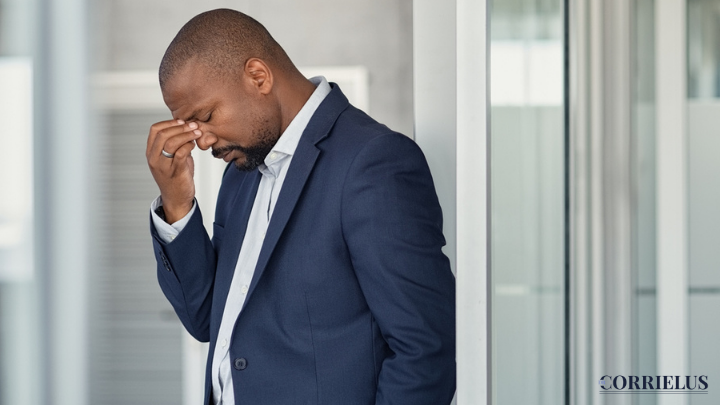Social Anxiety Disorder also referred to as Social Phobia, is a type of Anxiety Disorder that causes extreme fear and feeling of vulnerability in social settings. People having Social Phobia find it difficult to talk to others, meet new people, and attend social gatherings.
This may be perceived as mere shyness and awkwardness but it’s much more than that. They fear being judged for everything they do. They are perfectly aware of the fact that their fears are unreasonable or irrational. However, they feel powerless in overcoming them.
Social anxiety is not the same as shyness. Shyness is usually short-term and doesn’t disrupt one’s life or causes them to lose opportunities. Social anxiety is debilitating and persistent. It affects one’s ability to:
- Work
- Attend School
- Form Close Relationships with the People Outside of Their Family
The Anxiety and Depression Association of America (ADAA) states that approximately 15 million American adults have social anxiety disorder. This disorder may start showing its symptoms around the age of 13.
Some people might grow out of it on their own — being provided proper help and support, but some may need medical assistance.
Symptoms of Social Anxiety Disorder
Natural shyness and awkwardness stand no comparison to social anxiety. This is a fear that affects daily activities and tampers with your self-confidence and social relationships. It does not go away easily and lurks around with you for a long time if not treated well.
Many people worry about facing social situations occasionally, but a person with social anxiety feels overly worried before, during, and after the event.
You might be suffering from social anxiety if you experience the following symptoms:
- Worrying about everyday activities, such as initiating conversations, meeting strangers, speaking on the phone, shopping at a store, or basic communications.
- Always try to avoid social activities, such as eating or going out with people you’re not comfortable with.
- Worry about doing something that you perceive to be embarrassing — like sweating, coughing, blushing, or even appearing to be incompetent.
- Find it challenging to do things while other people are watching; you feel like you’re being watched or judged at every step you take.
- Have a constant fear of being criticized, avoid eye contact, and have a low self-esteem.
- Experience physical symptoms like feeling sick, sweating, trembling, or palpitations.
- Experience panic attacks for a while when you have an overwhelming sense of fear.
Some people with social anxiety may also develop several other mental health issues like depression, panic disorder, or general anxiety disorder.
What causes Social Anxiety?
Although the exact causes of social anxiety are unknown, some researchers have stated that it is caused by a combination of genetics and environmental factors. Following negative experiences may also be a contributing factor to social anxiety:
- Emotional Abuse
- Sexual Abuse
- Family Conflict
- Bullying or Harassment
- A Humiliating Event in the Past
What Can We Do To Reduce Our Anxiety?
There are a lot of things that we can do to reduce our anxiety. Self-help is a great way to soothe our social anxiousness. You may find it as the first step towards healing from this disorder.
Here are some self-help tips that may lend a hand towards your healing process:
- Try to learn and understand more about your anxiety. Think about the situations and write your thoughts down if possible. Study your behavior in certain situations, keep a diary and note your reactions to challenges.
- Try to listen to what people say and analyze it before jumping to conclusion. Do not overthink.
- Try some breathing and relaxation exercises to relieve your stress.
- Break down challenging situations into smaller units and work on feeling more and more relaxed with every step.
Medical Treatments for Social Anxiety
There are no such pills to toss into your mouth for becoming a social butterfly. Every step of the healing process involves therapy and willpower.
Here listed are some ways how you can relieve your social anxiety through therapy:
- Cognitive Behavioral Therapy
- Exposure Therapy
- Group Therapy
Doctors may also recommend anti-depressants to raise your serotonin levels and help release stress.
A Word from the Doctor
Therapy, lifestyle changes, self-reliance, and medication can help several individuals cope with their anxiety and function in social situations. Social phobia doesn’t have to control your life, nor does it have to let you compromise your opportunities.
And if you need further help in soothing your social anxiety the right way, contact me right away. I am here to help you.



